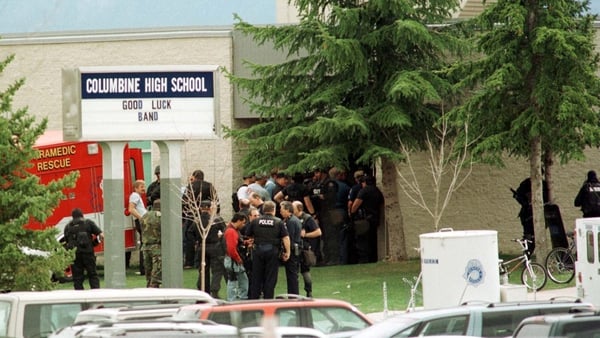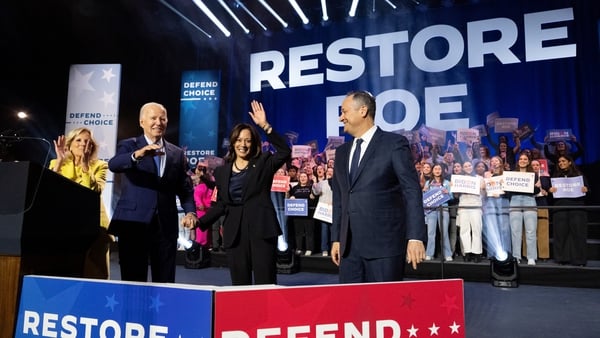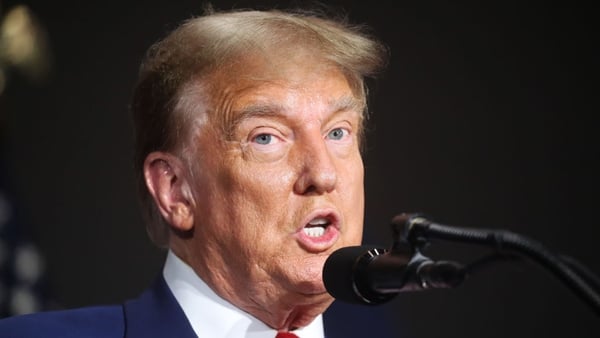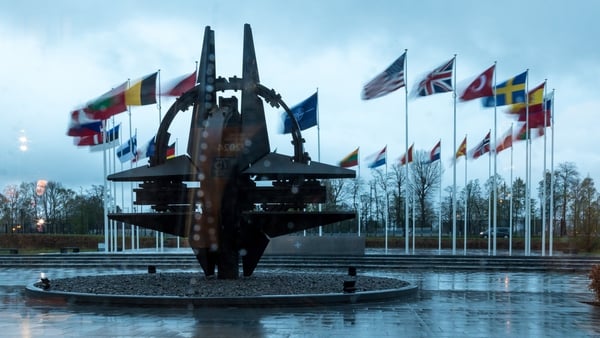This weekend, in Whistler, Canada, a new international organisation came into being – the G6 plus one.
OK, not really – it’s a row at the G7 finance ministers over the Trump steel and aluminium tariffs. But the isolation of the US Treasury Secretary Steve Mnuchin from the other countries was summed up by the French finance minster Bruno Le Maire as "G6+1". The Japanese finance minster said he almost felt sorry for Mr Mnuchin. Almost.
So what extraordinary magic has been deployed that compels the finance ministers of France, Germany Italy, Britain, Canada and Japan to gang up – and beat up - on the USA? In public!
The G7 is supposed to be the heart of the West, set up by the Americans to co-ordinate broad political and economic direction between America’s key allies. It was a strategic level organisation, par excellence. Now look at them.
The hope is that a big spat at the finance ministers meeting will avert a bigger dispute with the Americans. The fear is that Washington’s current incumbents actually want a big trade war with their closest strategic allies.
How different it was five years ago, here in Dublin? Then the Irish presidency of the EU hosted an event that effectively started the TTIP trade round – a set of negotiations to eliminate the already very low tariff barriers to trade between the EU and US, and – far more importantly – move on to dealing with non-tariff barriers of the kind that President Trump complains loudly about.
And it was to address regulatory alignment – something we have become all too aware of the value of in the Brexit negotiations. For the real heart of TTIP was not tariffs (which are negligible on trans-Atlantic trade), but on regulations and product standards.
By clubbing together to define standards for themselves, the two biggest economic blocks on the planet would effectively define standards for the rest of the world too, at least for the greater part of this century.
It was this strategic level thinking that struck me most forcibly when watching the US participant in the Dublin Castle event, Mike Froman, make his speech. Then, Mr Froman held the job of Deputy National Security Advisor for International Economic Affairs.
And he was crystal clear that TTIP was seen by the Obama administration as a strategic level issue. It was driven from the National Security Advisors office, not the Commerce Secretary. It was all about big picture, high level, long term thinking. How could an economy with a population of 320 million best compete on a planet of seven billion souls and counting?
Aligning their (already fairly close) product and services standards and market rules with 500 million Europeans, and almost 170 million Mexicans and Canadians (through NAFTA) to create a virtual single market of the billion richest consumers on the planet was one way.
So TTIP was launched. Along the way the EU (a "silent partner" that attends the G7 meetings) signed a big free trade deal with Canada, and more recently upgraded its deal with Mexico. But the timetable, racing the US electoral clock, wasn’t able to see the deal home in time, and the process was parked before Trump’s victory.
TTIP was merely in the deep freezer
The new president pulled America out of a Trans Pacific trade deal, leaving the way clear for China to assert even greater regional leadership (the original strategic thought behind the TPP was to prevent this happening). But because TTIP was merely in the deep freezer, it could be thawed out and warmed up under a future administration more sympathetic to the strategy.
But even this hope is being sorely tested – if not undermined – by the Trump administration’s use of National Security rules to impose tariffs on steel and aluminium from the EU and Nafta countries, not normal trade rules. This is somewhat curious, given Mike Froman’s former role as deputy NSA. But given the well publicised revolving door employment policy of the Trump presidency’s national security advisors, perhaps unsurprising.
Whatever its origin, using a cold war national security over-ride to hit imports from your closest political economic and military allies adds grave insult to the economic injury.
Think of Canadian prime minster Justin Trudeau on Thursday, reminding his southern neighbours that Canadian aluminium goes into US fighters, that Canadian steel makes US tanks. How can they treat Canada as national security risk to the US (that’s before he got to reminding them of all the Canadian soldiers who died in joint actions with the Americans).
The same is true here in Europe – at least in its instinctively Atlanticist political military and business establishment. Think of the way President Macron has courted President Trump – inviting him to last year’s 14 July parade to watch American soldiers march down the Champs Elysee to mark the centenary of the US entry into World War one.
And French forces bombed Syria with the Americans earlier this year, the latest in a long line of joint strategic engagements that goes all the way back to Yorktown.
Suddenly the French, like the Canadians, are a national security risk. It doesn’t sit well. It’s a profound insult, unlike the previous hooey about freedom fries. As for the British and their "special relationship" saving them after Brexit…..
Wilbur Ross, the Commerce secretary, tried to justify the move, saying it would only add half a penny to the cost of a can of soup. True. But they all stack up. Tony O’Reilly boosted profits at Heinz by scrapping the label on the back of a ketchup bottle. A few small savings can have a big effect on the bottom line. And vice versa with tariffs.
Mr Ross made his comments at the OECD in Paris, another post war organisation founded by the USA to help the strategic co-ordination of the western economies and economic system. From there he was on his way to China. That country is supposed to be the main target for the US metals tariffs. But the EU, Canada and Mexico supply 50% of the US steel and aluminium used in industry, China about 10%.
The EU files a case against the US at the World Trade Organisation
Cecelia Malmestrom the EU trade Commissioner, filed a case against the US at the World Trade Organisation on Friday. But she simultaneously filed a case against China (for allegedly undermining intellectual property rights of EU companies).
Smart politics not to let this response look like knee jerk anti-Americanism, but be a part of a wider shared objective, of re-integrating China into the global economy in a way that makes sense for all sides. And to defend multilateral trade bodies and instruments – something Chinese President Xi did when he stole the show at Davos.
Ireland has been directly caught up in this one because of the Aughinish Alumina plant. Originally built by the Americans, it’s now controlled by Russian oligarch Oleg Deripaska.
For a country that lives or dies by international trade, and which is integrated into global supply chains to an extent that very few countries are, Ireland stands to be squeezed in a trade war between its two most important economic partners, the EU and US.
There is no question about it – a trade war is bad for us. Look at the unusually forceful repudiation of a US policy by the American Chamber of Commerce in Ireland last week in response to the tariffs.
It is also bad for the cohesiveness of the global trading system on which we have bet the national farm. As well as the western political and economic system, in which Ireland is firmly ensconced.
So we have to ask the really important question: if Trump’s actions and insults are undermining the West, who really benefits? If strategic ties are loosened, who does that suit? If American strategic leadership is hobbled by the President’s actions, who wins. Cui Bono?, that’s the question.






